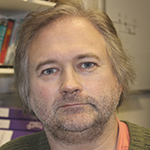Cost: £980
Book a place
Overview
On this two-day course you'll learn about all the steps in designing antibody therapeutics, from bioinformatics research to drug design and patient trials.
The course is run by UCL's Division of Biosciences.
Course content
The following areas will be covered during this course:
- Understanding antibody sequence and structure, genetics and diversity
- Antibody applications, humanisation and fragments
- Bioinformatics for antibodies: how to search and analyse sequence and structure using powerful database software
- Designing therapeutics, including understanding the problems of using antibodies in vivo and the key methods used to circumvent them
- Manufacturing therapeutics
- Intellectual property: understanding basic intellectual property issues and relating these to humanising antibodies, including patent disputes
Who this course is for
The course is suitable for those involved in the design or manufacture of antibody-targeted therapies.
This includes:
- scientists involved in researching, designing or manufacturing antibody therapies
- the medical community
- companies and industry involved in pharma research and manufacture
- postgraduate and professional researchers
- clinicians
- patent attorneys
Prerequisites
You'll need a science degree.
You don't need previous experience of working with antibodies specifically.
Structure and assessment
You'll take part in bioinformatics workshops within small groups. There will also be a series of presentations and opportunities for discussion.
There's no formal assessment.
Schedule
Day 1
The first day will cover the basics of antibodies and antibody-based drugs:
- Antibody Sequence and Structure
- Applications of Antibodies in vitro and in vivo
- Generating Recombinant Antibodies
- Humanization and Intellectual Property
- Three-Dimensional Modelling of Antibodies
Day 2
The second day focuses on the practicalities of antibody-based drugs:
- Using Recombinant Antibodies in the Clinic
- Diversity of Fc Effector Function in Antibody-Based Therapeutics
- Antibody Nomenclature, Current Advances and General Discussion
Learning outcomes
On completing this course you should:
- be able to analyse antibody structure and sequence using the latest research and powerful software
- understand how bioinformatics is used in the design of therapeutics
- be able to use the latest developments at UCL to inform your own work
- have an understanding of intellectual property relating to this work
- be aware of the opportunities and challenges involved in antibody-targeted therapies
Why you should attend
By attending this course you'll:
- have an opportunity to discuss issues with experts in the field. You'll hear from leading researchers from Biosciences and the Cancer Institute at UCL
- explore the therapeutics from ideas to the clinic - a unique benchside-to-bedside overview
- have the opportunity to network with your industry peers
- have the chance to explore the UCL-created abYsis antibody bioinformatics system which allows analysis of antibody sequence and structure to help develop better therapeutics
Employers: benefits of sending your staff on this course
Staff attending this course will:
- discover the latest developments in analysing antibodies and methods of developing therapeutics from UCL
- have an opportunity to exchange knowledge and form partnerships
- discover new ideas to bring back to the workforce for increased productivity
Cost and concessions
The standard course fee is £980.
Further information
More information about this course is available on the UCL Biosciences website.
Course team

Professor Andrew Martin, Division of Biosciences
Andrew's research focuses on structural bioinformatics: developing tools to investigate and understand the relationship between protein sequence, structure and function. Using the abYsis database, Andrew integrates sequence data from Kabat and IMGT and structural data from the PDB to create powerful search and analysis tools for antibody research.
Andrew obtained his first degree in Biochemistry from Christ Church, Oxford, where his research project involved working with Professor Peter Goodford on his GRID program – one of the first methods for computational drug design. He stayed at Oxford to do his DPhil with Professor Anthony R. Rees and developed the first automated program for modelling antibodies.
He holds a patent related to antibody humanisation and has served as an expert witness on a number of international patent disputes. He also acts as a consultant in humanising antibodies.

Professor Kerry Chester, UCL Cancer Institute
Kerry leads the Antibody Engineering Group at the UCL Cancer Institute. She has over twenty years' experience in antibody engineering and antibody phage-display technology and is currently Vice President of the Antibody Society.
Her main research interests are design and construction of antibody-based therapeutics and the interaction of these molecules with specific cancer targets. The work is largely translational: her group designed and manufactured the first single chain Fv antibody (scFv) to enter clinical trials and she's the academic lead of a GMP facility, manufacturing recombinant antibody-based cancer treatments for first-in-human trials. Current projects include bench-to-bedside development of antibodies for use as cancer imaging agents, antibody drug conjugates, chimeric antigen receptors (CARS) and nano-medicines.
Book a place
Course information last modified: 12 Dec 2023, 10:20
 Close
Close

